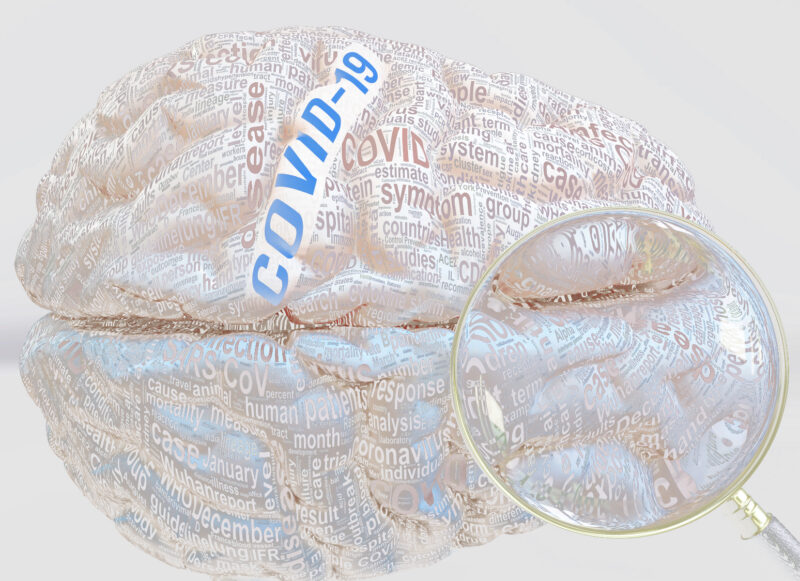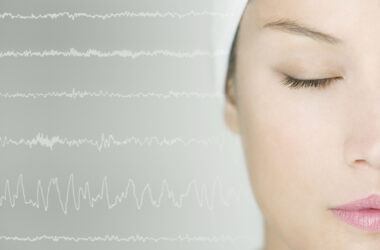When Covid-19 became a worldwide problem, it posed many challenges for medical professionals that came with a lot of questions. New effects on the human body were being discovered, each of which was caused by a virus that wasn’t well studied by any means.
Even today, Covid-19 may not be as much of a problem, but researchers in the medical continue to come across new discoveries.
One aspect of Covid-19 that has generated many questions is how the virus affects the brain.
This article will dive into various points regarding how Covid-19 has affected the brain of those who were infected.
Some complications range from minor to more extreme, but it’s important to understand these effects as they could come with short or long-term risk factors.
Primary Concerns
The human brain is an undeniably complex part of the body that is known for many nuances. Due to the organ’s sensitivity, it has been discovered that Covid-19 can generate numerous risks to the brain’s health.
It’s known that many people can make a full recovery from Covid-19, but many others have been dealing with long-term issues ever since their initial infection.
To highlight some of the most current research, you can take a dive into the relationship between Covid-19 and the hippocampus.
Covid-19 and the Hippocampus
This part of the brain works with memory and learning. A significant concern found in current research is that there could be a relationship between Covid-19 and post-infection memory loss.
Another crucial factor to note is that the virus could also cause accelerated neurodegenerative disorders such as Alzheimer’s.
For a better look at the science, Covid-19 can affect the central nervous system by activating microglia, which are immune cells.
This process acts as an instigator in the loss of neurogenesis, and this process is required for the formation of new neurons.
Further, in-depth medical research is needed in this area to help develop treatment options for those who are suffering from the aftereffects of Covid-19.
Although respiratory concerns were the main focus of Covid-19, this can also stem to complications in the brain.
Respiratory Function and the Brain
A simple correlation made between respiratory issues from Covid-19 and the brain is the lack of oxygen.
This is something that doesn’t take long to become an issue, as a lack of oxygen can lead to drastic effects on brain functionality.
Some risks associated with the brain and a lack of oxygen include:
- Changes in motor skills
- Damages to different regions in the brain
- Chronic pain
- Issues with impulse control
- Depression
- Anxiety
The list goes on from here, as the sensitivity of the brain knows no bounds. An extended lack of oxygen can lead to something called hypoxic-ischemic injury, which is correlated to tissue damage in the brain.
Another common issue with Covid-19 is brain fog, which has been experienced among many different age groups.
Young and old, the term brain fog is the perfect explanation for the symptoms that come with it regarding Covid-19.


Brain Fog from Covid-19
This term refers to problems in the brain that are similar to chronic fatigue syndrome. Consistent research and analysis have shown that brain fog generally occurs three months after a Covid-19 infection, but it can last all the way up to nine months.
Based on this experience, researchers began to explore the effects of the virus on brain cortical activity. A lot of the research surrounding brain fog is in hopes of creating treatment options to help reduce the longevity of the condition.
It’s also to prepare for future virus outbreaks in case similar symptoms come to light down the road.
Overall, these are only a handful of issues found to be correlated between the brain and Covid-19, and researchers continue to learn more about the long-term impacts of the virus.
It should also be highlighted that some patients have only encountered minor symptoms in the brain and enjoyed a quick recovery from the virus.
However, there are numerous individuals who are still experiencing the effects of “long Covid,” and some medical professionals are worried that certain symptoms could be lifelong.
What are the Treatment Options?
Likely to be the most significant challenge associated with Covid-19, treatment options for the virus have been a difficult path for medical experts.
Considering there wasn’t any pre-existing data on the virus before it rattled the world, doctors and researchers were on a time crunch to find the answers.
Although there is currently more data on the virus, certain aspects of how the virus affects the brain and the body are still heavily misunderstood.
Many of the treatment options available for long Covid sufferers are based on existing treatments.
This has shown to be quite helpful for many people, but in some circumstances, these treatments aren’t fixing the problem.
Once again, the issues mentioned in this article may require new treatment plans when you factor in the brain’s sensitive nature.
These can take years to develop, but the future for long Covid patients looks good as new discoveries continue to come to light.
The Bottom Line
How Covid-19 affects the brain has been a hot topic among researchers and medical professionals since the begging of the pandemic.
There’s no doubt that many people have and continue to suffer, but this isn’t to say that there aren’t any helpful solutions available.
Unfortunately, the actual reality is that the effects of Covid-19 on the brain and body are still an issue for many people, and medical experts are hard at work to handle the virus in the long term.
It may be one of the biggest medical challenges of this generation, but researchers and doctors alike are confident that help is headed in the right direction.










